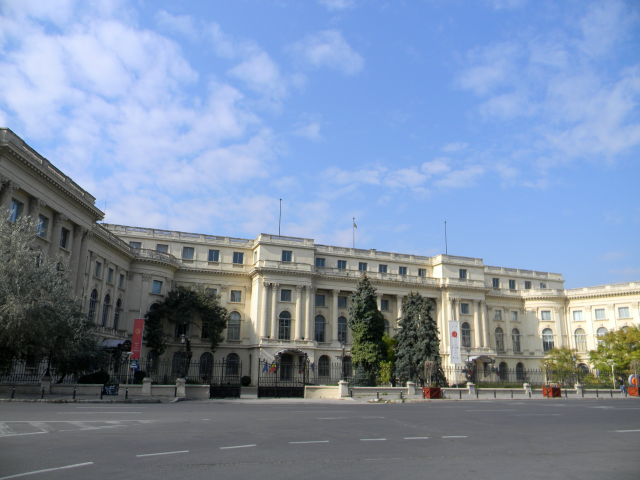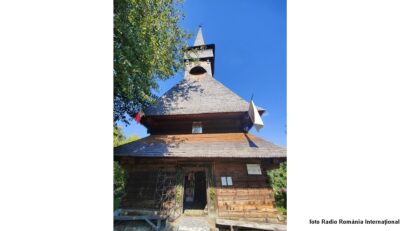Bucharest, the pulse of the community
The results of a research about the quality of life, housing, education, social welfare and healthcare services in the capital of Romania

Christine Leșcu, 07.06.2017, 13:14
How well do Bucharesters know their city? Most importantly, how accurate are their intuitions and empirical observations when compared against statistical, objective data about the city? For instance, heavy road traffic and crowded streets in the city centre in particular make us believe we live in an overpopulated city. However, statistics would contradict us: on January 1, 2016, the city of Bucharest officially had 1,844,576 inhabitants as compared to 1992, when the population reached a record figure of 2,067,545. In order to provide as accurate an image as possible, the Bucharest Community Foundation conducted a study gathering official data about the city in 12 key fields, including demography, education, safety, social welfare, health-care, cultural habits, traffic, housing conditions and the feeling of membership to a neighborhood.
Titled “Bucharest: the pulse of the community”, the research was conducted by a group of sociologists and anthropologists who mainly synthesized data provided by the National Statistics Institute and Bucharest’s six administrative units. One first conclusion was that the mismatch also occurs when comparing official data. For instance, in order to see what the gaps between the rich and the poor look like, data was collected from the welfare directorate of each district, which revealed surprising information, according to sociologist and university professor Valentina Marinescu:
“It was very difficult to compare Bucharest’s districts, because things differ from one district city hall to another. There are city halls that are very well organized and provided us with the data that we needed. On the other hand, there are city halls that, when we asked for data, provided us with just a single piece of paper. That says a lot about an administrative apparatus paid from taxpayers’ money. That is why it was extremely difficult to compare data as regards single-parent families, the rich and the poor of Bucharest, children in need or senior citizens”.
Because of the flawed data-gathering process, some results are conflicting: the local authorities of those sectors generally viewed as wealthier have more people on welfare benefits than those sectors that are underprivileged. Valentina Marinescu:
“In the first quarter of 2016, over 50% of the social assistance aid in Bucharest apparently went to sector 1. If we look at these data, compared to those made public by the other sectors, we would be tempted to believe that the largest proportion of people in need of welfare live precisely in that part of Bucharest with the largest number of multinational corporations, Pipera… Sector 6 has reported 108 cases, sector 5 112, and sector 3, 584. We have no data from sector 2, so we don’t know anything about the situation there. It all comes down to the way in which these cases are reported, and to the way in which each separate city hall manages the money earmarked to social assistance.”
Bucharest proves to be a very special city in terms of education as well. Although the school infrastructure is better than in other places, Bucharest has a rather high dropout rate, around 15%, and a Baccalaureate pass rate that does not go above the national average, at 53%. Valentina Marinescu again:
“In Bucharest, we are a little atypical when it comes to education. There is a lot of emphasis on perfection in education and on linking performance to education, to a greater extent than in other parts of the country. It would be interesting to run a separate survey to see how much money is invested in private after-schools and private tutoring and so on. On the other hand, the fact that in Bucharest the Baccalaureate pass rate was 53% does not mean that the kids here do worse than elsewhere in the country, but rather that the people here assess their children against stricter criteria.”
Cultural consumption is closely tied to education. A 2015 sociological survey quoted by the authors of the report indicates that 54.2% of the people of Bucharest prefer to go to the theatre, 35.1% to pop and dance music shows, and 14.6% to traditional music shows. On the whole, however, 71.8% of the Bucharest locals never buy a theatre ticket. Here is Vlad Odobescu, a journalist and anthropologist, one of the authors of the research study made public by the Bucharest Community Foundation, talking about cultural preferences in Bucharest:
“It doesn’t mean that they don’t take part in the city’s cultural life at all. Especially in recent years, both the City Hall and the sector authorities have organized outdoor events. I am not sure to what extent they can be rated as cultural events, but they are a way to attract people to this field. And we can link this figure to the 40% of the Bucharesters who spend their free time in shopping centers or malls. That says a lot about the city’s cultural infrastructure as well. In 1990, we used to have 77 state-run cinema halls, and today there are only 17 left, including in Ilfov County, next to Bucharest.”
And still, Bucharest remains a vibrant city, not only in economic terms, but also in terms of its cultural output. This vitality does not necessarily stem from the young age of its citizens, because only one-quarter of them are aged up to 24. And this is a lot less than in other large cities in Romania. While not so young in demographic terms, Bucharest is, apparently, a safe city. Vlad Odobescu again:
“Over the past few years, Bucharest has taken pride in being a safe city, and if we look at broader surveys, we see that it is ahead of places like Prague, Bratislava, Vilnius and others. But within the national borders, Bucharest is less safe than other large cities, like Cluj or Iasi. There are several indicators taken into account in reaching this conclusion, such as the number of offences, like robberies or theft, the frequency of sexual assaults, or traffic incidents and so on.”
Bucharest is, apparently, a city that is not very well known. But the process of documenting it has been launched, and, at the end of the day, we may well discover that its many paradoxes are intrinsic to its charm. (Translated by M. Ignatescu and A.M. Popescu)






























